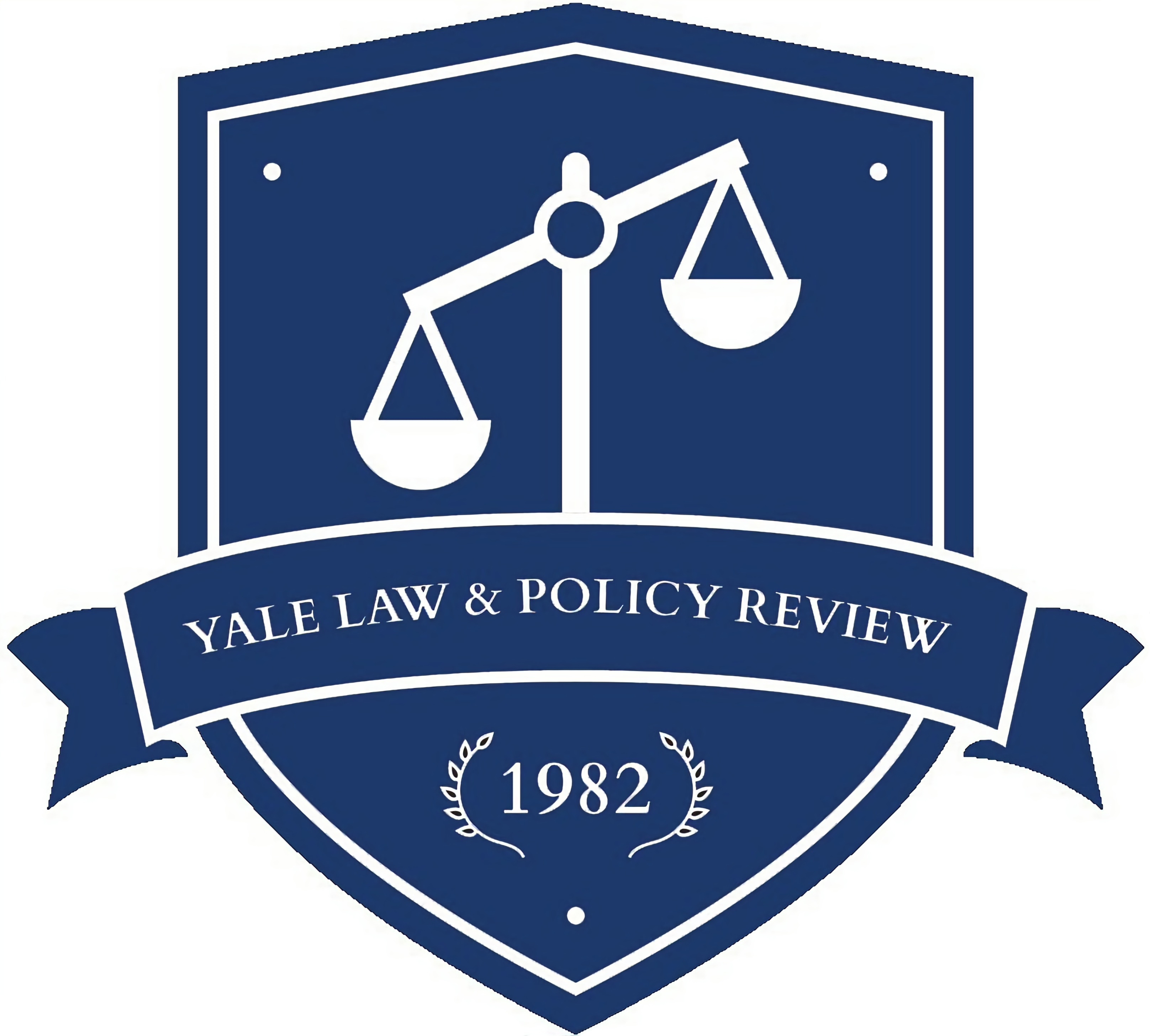About YLPR
Founded in 1982, the Yale Law & Policy Review (YLPR) is a biannual publication of the Yale Law School dedicated to publishing legal scholarship and policy proposals by lawmakers, judges, practitioners, academics, and students.
Past YLPR contributors include Justices Ruth Bader Ginsburg, John Paul Stevens, and Clarence Thomas; President Bill Clinton; Vice President Al Gore; Secretaries of State Hillary Clinton and Cyrus Vance; Senators Bill Frist, Ted Kennedy, Joe Lieberman, and Arlen Specter; Ambassador John Negroponte; and Professors Richard Epstein, Owen Fiss, Harold Koh, Catherine A. MacKinnon, Robert Post, Judith Resnik, Susan Rose-Ackerman, and Cass Sunstein.
Inter Alia, the online companion to the print version of the Yale Law & Policy Review, serves as a cutting-edge online forum for shorter, timely scholarship at the intersection of law and policy.
You can follow us on X and LinkedIn.
For more information, please contact Editors-in-Chief Rebecca Araten and Cris Guevara-Plunkett at ylpr@yale.edu.
Subscribing to YLPR
The YLPR’s subscription rate for institutions is $30.00 for domestic delivery and $40.00 for international delivery. For individuals, the subscription rate is $20.00 for domestic delivery and $30.00 for international delivery.
Subscriptions are automatically renewed unless YLPR receives a request for cancellation. A claim for non-receipt of an issue is honored up to a year following the mailing date of the publication.
All requests concerning subscriptions should be addressed to the following addresses:
Email addresses: ylpr@yale.edu and law.studentjournals@yale.edu (please contact both)
Mailing address:
Executive Managing Editors
Yale Law & Policy Review
Yale Law School
P.O. Box 208215
New Haven, CT 06520-8215
For permission to reprint YLPR articles, please contact the same addresses.
Please include author, title, volume, issue number, and year the article appeared. If you choose to contact YLPR about reprints by email, please include “Reprint Request: Managing Editors” in the subject line of your email.
Articles published in YLPR may be duplicated for classroom use provided that the author and the Yale Law & Policy Review are identified, each copy is distributed at or below cost with proper notice of the copyright affixed, and written notice of the use is given to the Executive Managing Editors at the above address or via email.
Our Sponsors
The Yale Law & Policy Review’s work is made possible thanks to the generous support of our sponsors.

